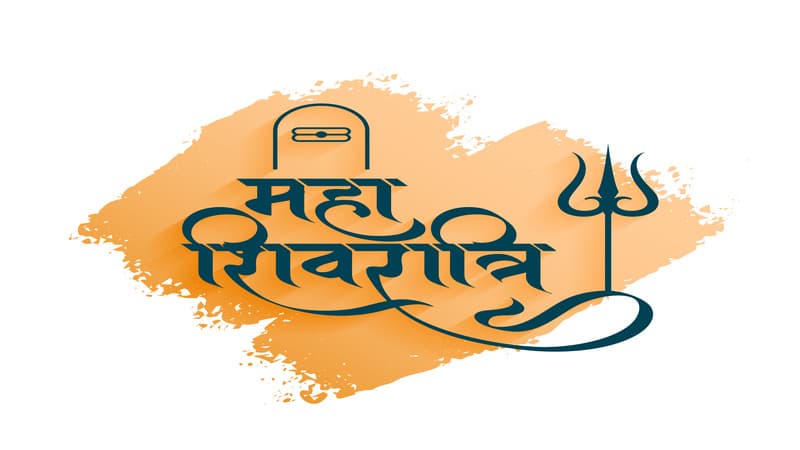
Traditional Mahashivratri Offerings and Their Symbolic Meanings - Maha Shivratri is a special festival dedicated to Lord Shiva, celebrated with devotion across India and beyond. It holds deep spiritual meaning, marking the victory of light over darkness and wisdom over ignorance.
This year, on 26th February 2025, devotees will come together to fast, visit temples, and perform rituals to seek Lord Shiva’s blessings.
One of the most important parts of the celebration is making offerings to Lord Shiva. Different items are offered, each carrying a special meaning. If you’re observing the festival, understanding the significance of Mahashivratri and its offerings can make your prayers even more meaningful. Let’s explore some traditional offerings and what they represent.
Traditional Offerings and Their Symbolic Meanings
1. Bilva Patra (Bel Leaves)
Bel patra, or bilva leaves, hold great significance in the worship of Lord Shiva. The leaves are made up of three parts, and each part is believed to represent an important aspect of Hindu beliefs.
The first part symbolizes Brahma, the creator of the universe, the second part represents Vishnu, the protector, and the third part stands for Shiva, the destroyer and transformer.
Together, these three leaves represent the Trinity of Hindu gods—Trimurti—showing the balance and unity of creation, preservation, and destruction.
Offering these leaves is a way to show purity, love, and respect for Lord Shiva. Many people believe that when you offer these leaves with true devotion, Lord Shiva will bless you, help you overcome challenges, and remove negativity from your life, bringing peace and spiritual growth.
2. Milk and Milk Products
Lord Shiva is often connected with a special drink called 'Somras,' which is believed to give immortality. Because of this, milk-based foods like ghee, yoghurt, and sweets such as kheer or peda are important offerings.
People believe that offering these things brings Lord Shiva’s blessings, helping to purify the mind and bring peace and good health to their lives. It’s also seen as a way to connect with divine energy and seek protection.
3. Water (Abhishekam)
Water is used in the Abhishekam ritual, where it is poured over the Shiva Linga. This act of offering water represents cleaning away bad energy, sins, and impurities.
It is believed to refresh the soul and help a person feel spiritually clean. Many believe that offering water during prayer can bring Lord Shiva’s blessings, removing worries and bringing peace of mind. It’s a simple but powerful way to show respect and devotion.
4. Dhatura
Dhatura is a plant that has beautiful flowers and some medicinal uses. In Hindu rituals, it is considered sacred and is offered to Lord Shiva.
Offering dhatura symbolizes giving up one’s ego and opening the mind to divine wisdom. However, it’s important to handle dhatura with care, as some parts of the plant can be harmful if used incorrectly.
5. Bael (Wood Apple) Fruit
The bael fruit, also called wood apple, is considered a very auspicious offering to Lord Shiva. Its round shape and the three segments inside it are thought to represent the three main aspects of Lord Shiva: creation, preservation, and destruction.
Offering bael fruit is believed to bring blessings for spiritual growth and enlightenment, helping the devotee move forward on their spiritual journey with a peaceful mind.
6. Honey
Honey is sweet, and in the same way, it represents the sweetness of knowledge and wisdom. Offering honey to Lord Shiva is believed to bring blessings that make life sweet and peaceful.
It symbolizes the desire for a life filled with good knowledge and understanding, and it’s a simple but meaningful way to ask for Lord Shiva’s blessings in life.
7. Fragrant Offerings
Incense sticks usually from premium brands like Hem Fragrances are often lit during prayers to create a peaceful and calm atmosphere. The sweet smell of incense is believed to attract positive energy and calm the mind.
By using incense sticks during worship, people create a better environment for their prayers, helping them feel closer to Lord Shiva and creating a peaceful place for spiritual focus. The smoke from the incense is seen as a way to send prayers to the divine and invite blessings.
8. Bhasma (Holy Ash)
Bhasma, or holy ash, is often used in Hindu rituals, especially in worshiping Lord Shiva. It is believed to have the power to cleanse and purify the body and soul.
Applying bhasma on the forehead or offering it during prayers is a sign of humility and surrender to Lord Shiva, helping to remove negative energy and sins.
9. Rice and Fruits
Rice and fruits are common offerings in many religious rituals. Offering rice, especially in small amounts, symbolizes prosperity and abundance. Fruits, being pure and natural, are given to seek blessings for good health and happiness. By offering these simple items, devotees show their gratitude and ask for Lord Shiva’s blessings for a better life.
A Complete Pooja Kit for Maha Shivratri
This Maha Shivratri, you can make your puja experience more meaningful with the Aradhana Pooja Samagri from HEM. The kit is thoughtfully put together to offer everything you need for a complete worship session.
It includes essential items like white abhir, gulal, kumkum, haldi, and camphor tablets, which are perfect for carrying out the traditional rituals. The kit also has moli (holy thread), pooja supari (betel nut), and fragrant agarbatti with a wooden stand, creating a peaceful and spiritual atmosphere for your puja.
Along with these, you’ll find akhata (raw rice), a photo of Lord Shiva, and a pooja cloth (vastra) to help carry out the worship with care. This complete kit makes it easy to prepare for Maha Shivratri, allowing you to focus on the ritual and spiritual aspects of the day, while honoring Lord Shiva in the best way possible.
Closing Thoughts
Maha Shivratri is a time to connect with Lord Shiva through meaningful offerings, each carrying its own significance. These rituals help deepen devotion, bring peace, and invite spiritual growth.
By understanding the meaning behind the offerings, we can make our prayers even more heartfelt and impactful.

